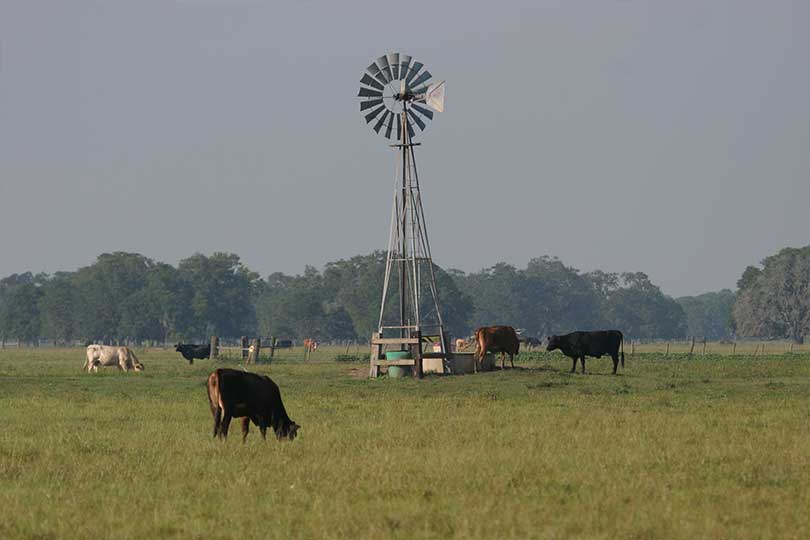The state veterinarian of Texas encourages livestock owners to have their animals vaccinated against anthrax this spring.
“Following last year’s outbreak in Southwest Texas, we encourage livestock owners in the previously affected and surrounding area to consult with their veterinarian about vaccinating animals before warmer weather arrives.” Dr. Andy Schwartz, Texas state veterinarian and Texas Animal Health Commission (TAHC) executive director. “The anthrax vaccine is dependable and proven to protect livestock from the disease.”
To be effective, the anthrax vaccine must be administered two to four weeks before a normal outbreak, usually in early spring. The vaccine is available for use in swine, equine, sheep, goats and cattle.
There is no approved vaccine for use in deer.
It is common to see an increase in anthrax cases after periods of wet, cool weather, followed by hot, dry conditions. At that time, animals ingest the anthrax bacteria when they consume contaminated grass and hay or inhale the spores. Outbreaks usually end when cooler weather arrives.
In 2019, TAHC received 20 confirmations of anthrax in five Texas counties: Crockett, Edwards, Kinney, Maverick, Sutton and Val Verde.
In an effort to gain better understanding of factors that may have contributed to the outbreak, TAHC, the U.S. Department of Agriculture and Texas Parks and Wildlife created a survey for landowners in the affected area. To participate in the survey, please call 512.719.0716.
Anthrax is a bacterial disease caused by Bacillus anthracis, a spore-forming bacterium that can remain alive but dormant in the soil for several years. Upon becoming infected, animals typically display symptoms of anthrax within three to seven days.
Once symptoms begin, death will usually occur within 48 hours. Anthrax is a reportable disease to TAHC, and anyone suspecting anthrax should notify a local veterinarian or TAHC at 1.800.550. 8242.
For more information on anthrax, visit the links below:
Animal Health
2019 Anthrax Outbreak Summary
Human Health

